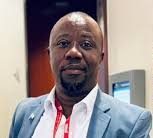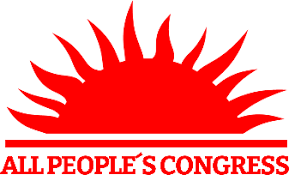By Hassan Osman Kargbo
A storm of public anger and condemnation has erupted across social media following a controversial Facebook post by Myk Berewa, the Director of Communications at State House, in which he reportedly made tribalistically charged remarks targeting individuals based on their surnames.
Berewa’s comments, widely circulated online, have been deemed “divisive,” “reckless,” and “dangerously inflammatory” by citizens, civil society actors, and political commentators alike. The post, which appeared on his personal Facebook page earlier this week, singled out certain common Sierra Leonean surnames—such as “Kamara,Kanus, Koromas, Contehs etc”—in a derogatory context, raising deep concerns about rising ethnic tensions and irresponsible rhetoric from public officials.
The backlash has been swift and intense. Across social media platforms, Sierra Leoneans from all regions and backgrounds have voiced their frustration and disappointment over what they see as a blatant display of tribalism by a high-ranking government spokesperson. The post has ignited debates around national unity, the role of public officials in fostering cohesion, and the dangers of normalizing ethnic stereotypes.
“My surname, ‘Kamara,’ is a source of pride and heritage for me,” wrote one user in response to Berewa’s post. “It is unacceptable for anyone—least of all a government official—to reduce such names to objects of ridicule or suspicion. This is how division starts.”
Civil society organizations have joined the chorus of condemnation. The Campaign for Good Governance (CGG) released a statement on Thursday calling the remarks “highly irresponsible” and warning of the risks such rhetoric poses to peace and national cohesion. “Tribalism has no place in our democratic discourse. The Director of Communications at State House holds a position of significant influence, and his words carry consequences. We call for an immediate public apology and urge the presidency to take a firm stance against this behavior,” the statement read.
The incident has also sparked comparisons to tragic episodes of ethnic violence in other parts of Africa, most notably the 1994 genocide in Rwanda. “We must never forget the consequences of stoking tribal division,” said human rights activist Aminata Conteh. “One careless comment from a person in power can set off a chain reaction with devastating consequences. We must demand accountability now—not after the damage is done.”
Religious and community leaders have echoed similar concerns. In a joint press briefing held in Freetown, the Inter-Religious Council of Sierra Leone urged national leaders to “speak and act with unity and responsibility,” while stressing the need to “condemn hate speech in all its forms, regardless of political or ethnic affiliation.”
The anger has also spilled into political circles. Opposition parties have seized on the incident to call out what they see as a culture of impunity within the administration. A spokesperson for the All People’s Congress (APC) described Berewa’s remarks as “a stain on the Office of the President” and urged President Julius Maada Bio to take immediate disciplinary action. “This kind of rhetoric undermines everything we’ve worked for as a nation. The silence from the top is deafening. We need leadership, not complicity,” the spokesperson said.
Many Sierra Leoneans are demanding a public apology from Myk Berewa and are calling on State House to initiate disciplinary proceedings. So far, Berewa has neither retracted the statement nor offered a formal apology, deepening public frustration.
“This is not just about a Facebook post—it’s about the kind of country we want to live in,” said university lecturer Dr. Mohamed Jalloh. “We cannot afford to let tribalism become normalized in our public discourse. If we do, we risk sowing seeds of division that could take generations to undo.”
As the controversy continues to grow, citizens have begun organizing online campaigns and petition drives urging the presidency to act. Hashtags such as #StopTribalHate and #UniteSalone are gaining traction, with many users emphasizing the need for unity, tolerance, and responsible leadership.
The presidency has yet to issue a formal statement on the matter, but pressure is mounting on President Bio to publicly distance himself from the remarks and to reinforce his administration’s commitment to national unity.
In a country still healing from decades of civil unrest, this incident serves as a painful reminder of the power of words—and the responsibility that comes with holding public office. The people of Sierra Leone are watching closely, demanding not just apologies, but accountability and action.













